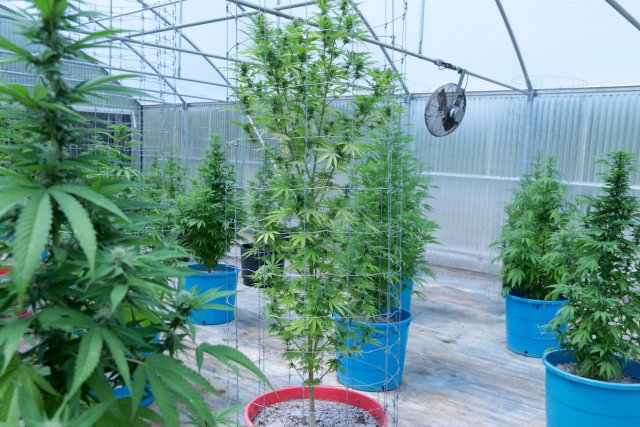
Days after withdrawing their initial recreational marijuana initiative petition, proponents of legalizing weed in Oklahoma took another rip at the proverbial bong today by filing what could become State Question 807.
“The new ballot initiative strengthens the language of the previously filed initiative to ensure that we are crystal clear that this program does not adversely affect the current Oklahoma medical marijuana industry or its patients,” said spokesperson Michelle Tilley in a press release. “While we did not foresee any issues with our original language, we are strong supporters of Oklahoma’s medical marijuana programs, and we felt it was worthwhile to eliminate any uncertainty.”
Tilley and Ryan Kiesel are the two official petitioners proposing SQ 807. Kiesel also serves as director of Oklahoma’s chapter of the American Civil Liberties Union.
“An overwhelming majority of Oklahomans from across the political spectrum support reforming the marijuana laws in Oklahoma,” Kiesel said via press release. “The time has come to build a system of reasonable regulations that invests millions in education and health care.”
Asked Friday about his pursuit of recreational marijuana in Oklahoma, Kiesel said he was pushing the proposal “in my individual capacity” and not in association with the ACLU.
Differences in SQ 807 proposal
Tilley and Kiesel filed the new recreational marijuana proposal’s language after a week’s worth of backlash from some segments of Oklahoma’s nascent medical marijuana industry. Medical marijuana advocate Chip Paul told News on 6 that he did not know if the state’s industry was “quite ready” for recreational marijuana.
Others took to social media to criticize SQ 806.
In announcing the filing of SQ 807, Tilley distributed a revised “fact sheet” that noted changes to the proposal in boldface:
- Only existing medical marijuana businesses in Oklahoma would be eligible to receive licenses during the first two years after recreational marijuana business licenses are available;
- The proposed 15 percent excise tax would not apply to products purchased by medical marijuana patients.
“Since medical marijuana became legal in Oklahoma, not only have thousands of Oklahomans benefited as patients, many Oklahomans have invested their own money in building businesses. Those businesses have in turn created good jobs throughout the state,” Tilley said in her release. “This new program will expand access for all adults over 21 in Oklahoma, while protecting the existing medical marijuana program and those who need medical marijuana as patients.”
Tilley’s release said SQ 807 “is backed by stakeholders in Oklahoma and New Approach PAC, a national marijuana reform organization that has managed successful ballot initiative campaigns to legalize medical marijuana and adult-use marijuana in multiple other states.”
Ten other states already permit recreational use of marijuana, and a new law authorizing it in Illinois is scheduled to take effect Jan. 1.
Based in Washington, D.C., New Approach PAC contributed at least $6.9 million to marijuana campaigns between 2014 and 2018 in states like Michigan, Oregon, California, Massachusetts and Maine, according to Ballotpedia.
Like its earlier iteration, SQ 807 proposes amendment of the Oklahoma Constitution. If it advances beyond a period where its language can be challenged, SQ 807 will need 178,000 signatures from registered voters over a yet-to-be determined 90-day window.
Read the proposed SQ 807 petition
 Loading...
Loading...
Tulsa activist also submits petition proposal
Eccentric Tulsa resident Paul Tay also filed paperwork Friday to circulate a petition legalizing marijuana consumption in Oklahoma. Tay’s proposal, State Question 808, calls for “universal basic access to cannabis.”
“The right of all persons to consume cannabis shall not be infringed,” Tay’s proposed amendment to the Oklahoma Constitution reads. It also would prohibit incarceration based upon consumption, transfer or transport of cannabis.
In its defining terms, Tay’s proposal emphasizes the deregulation of cannabis products for all applications:
“Cannabis” does not include hemp, or commodities or products manufactured with hemp, or any other ingredients combined with cannabis to prepare topicals, oral, or rectal administrations, food, drink, or other products.
SQ 807 includes a similar definition of marijuana.
(Update: This story was updated at 7:55 p.m. Friday, Dec. 27, to provide information about State Question 808.)





















